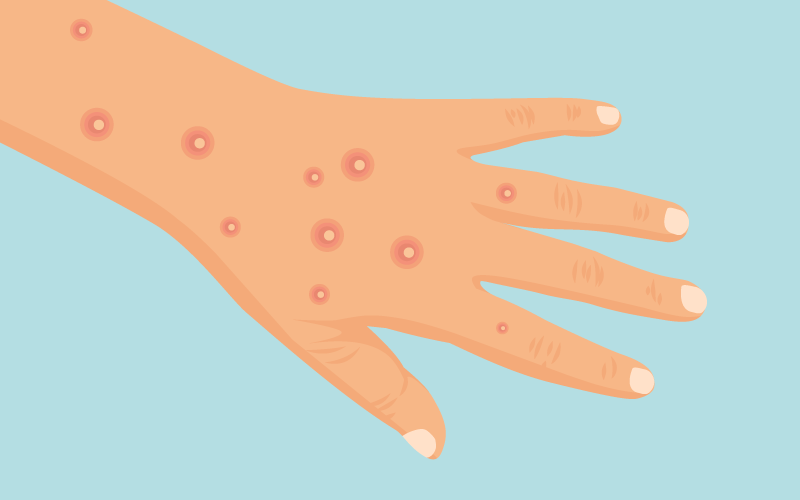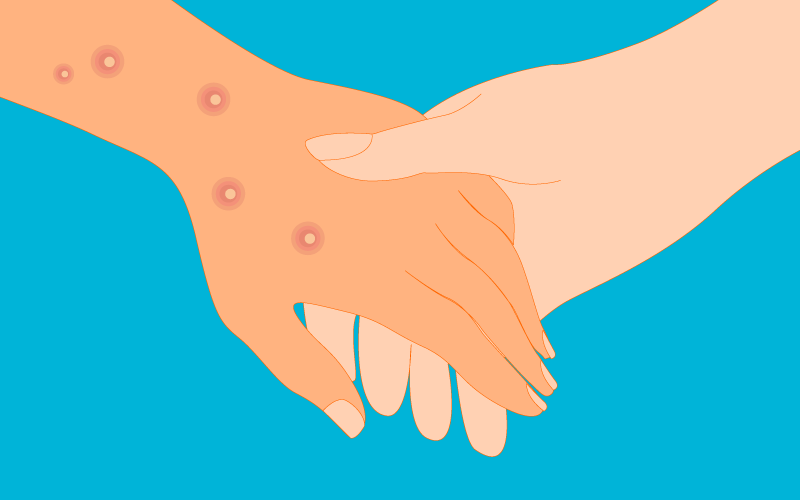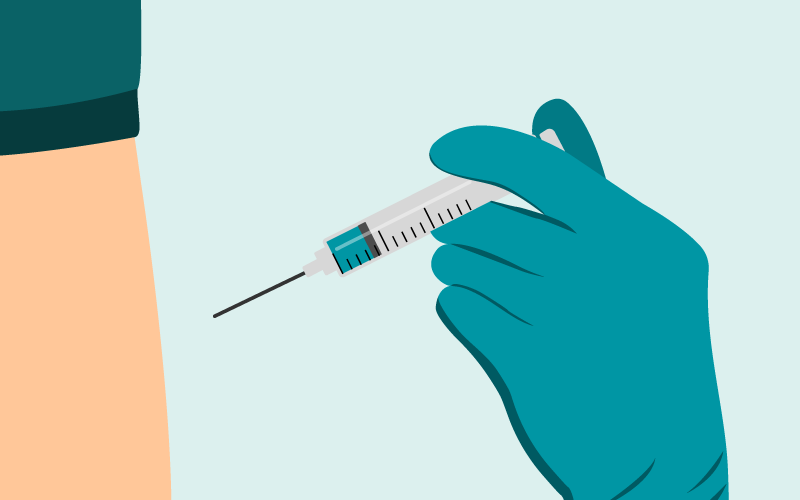Mpox (monkeypox)
What is mpox (monkeypox)?
Mpox is a rare viral disease that causes symptoms of an acute viral infection (fever, headache, muscle aches) and a rash that resembles pimples or blisters.
In 2022, for the first time, a large number of cases were reported in the EU and worldwide in countries where it was not common. Over 20000 cases were reported in the EU/EEA during the 2022 outbreak. These cases were unrelated to travel to places where the monkeypox virus was historically known to circulate.
In November 2023, a new mpox clade Ib variant was detected in the Democratic Republic of the Congo (DRC). This variant spread to several other African countries and prompted the World Health Organization to declare a Public Health Emergency of International Concern (PHEIC) on 14 August 2024. Since then, and as of November 2024, only a handful of cases with infections due to mpox clade Ib have been reported outside Africa.
At a glance: Mpox in Europe
- Viral infection characterised by skin blisters
- Mpox virus spreads through close contact with an infected person or animal
- Over 26 000 cases since 2022
- Vaccination can prevent mpox and the complications it can cause.

What are the symptoms of mpox?
Symptoms include lesions that may be difficult to distinguish from other poxvirus infections and, to some extent, chickenpox.
People with mpox often present a combination of the following symptoms:
- fever
- headache
- chills
- exhaustion
- lymph node swelling
- back pain and muscle aches
- mucous membrane lesions and a skin rash.
The rash may appear before or after the other symptoms and is generally located on the face, hands, feet, around the genitals or anus.
Skin lesions will often first present as spots that evolve into fluid-filled blisters, then crust and scab before the skin heals completely.
What are the complications of mpox?
Most people who get mpox recover without any complications. Newly identified cases of mpox should undergo a medical assessment for severity and risk factors (e.g., underlying conditions or medications affecting immune competence, untreated HIV infection, etc.). Those with severe disease may require hospitalisation and/or treatment with antivirals.

How does the monkeypox virus spread?
In Africa, where the monkeypox virus also circulates among animals, it can be spread from animals to humans through direct contact with infected animals such as rodents, as well as being transmitted by close contact between humans.
In Europe, since the large outbreak of 2022 most diagnosed human mpox cases were among men who have sex with men, which suggested that transmission occurred during sexual intercourse.
Who is at risk of mpox?
While the majority of cases in 2022 were among men who have sex with men, anyone who has close, direct contact (including sexual contact) with someone who has mpox is at risk of catching the monkeypox virus. Contact with clothing, bedding, towels, objects, and other surfaces that have been touched by someone with mpox can also lead to transmission of the monkeypox virus.
Those with weakened immune systems due to underlying medical conditions, certain medications, or treatments (such as chemotherapy) may be more susceptible to mpox and its complications.
It is important to note that while these groups may be at higher risk, mpox can potentially affect anyone who comes into contact with an infected person.

How can mpox be prevented?
Mpox can be prevented by avoiding close contact with infected people and practising good hygiene such as washing hands frequently with soap and water.
Vaccination against smallpox, a disease caused by a related virus, provides some protection against mpox.
If you suspect that you may have been exposed to the monkeypox virus, isolate yourself from others, and seek medical attention from your healthcare provider immediately.
Note: The information contained in this factsheet is intended for the purpose of general information and should not be used as a substitute for the individual expertise and judgement of a healthcare professional.
